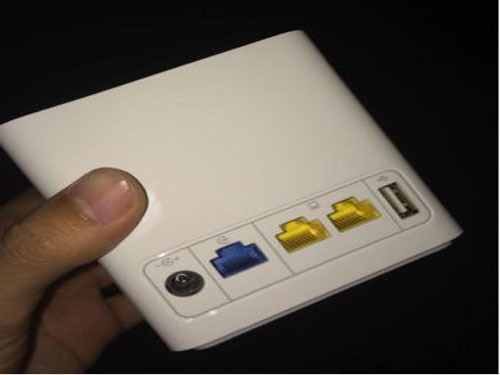
The “Wi-Fi Master Keyâ€, which has been regarded as a net artifact by netizens, has recently revealed a major problem involving the theft of a user’s personal Wi-Fi password! When the average user selects the default sharing, the App can access the Wi-Fi password data file stored in the mobile phone system and upload it to the cloud. When other users connect to Wi-Fi, they can automatically obtain the password from the cloud. After obtaining the Wi-Fi password, you can directly change the router parameters. If you are taken care of by a malicious person, you can directly tamper with the DNS. When you visit the online banking, Alipay and other pages, you will be linked to a dangerous phishing site; it may be overnight. Between you and your saved hard-earned money, there is no leftover, you may also access private photos and videos on your computer through the local area network, and publish it on the Internet... This is not really sensational, and these are not inevitable.
How to avoid this risk? On the one hand, it is to increase the awareness of network security. On the other hand, it is also crucial to choose a high-security wireless router. The glorious route newly released at the MWC2015 conference recently boasts four major security assurance technologies: WPA/WPA2-PSK encryption, anti-brute force cracking algorithm, guest Wi-Fi isolation, and blacklisting of strangers. Easy to eliminate such risks. And are these technologies really reliable? You may wish to check it out together.
Protection 1: "WPA/WPA2-PSK" encryption
To improve security in a Wi-Fi environment, the most basic one is to have a good password encryption method to ensure that your password is not easily cracked by the intercept signal. Currently, commercially available routers generally have three encryption methods, including "WEP", "WPA/WPA2", and "WPA/WPA2-PSK". We do not need to study the principles of the three encryption methods. We only need to know that WEP is a relatively early encryption method and that WEP encryption can be easily implemented. However, WPA/WPA2 is based on WEP encryption. The third, "WPA/WPA2-PSK" is based on the same "WPA/WPA2" technology, but it is simplified for home users and is currently the most secure and most easily implemented encryption method. With the support of this technology, the traditional method of wireless password cracking has almost become invalid, allowing home networks to have the most basic security guarantees.
Protection II: Anti-brute algorithm
Although there is a "WPA/WPA2-PSK" encryption network, because common home Wi-Fi will turn on SSID broadcasts (ie, mobile phones and computers can search for Wi-Fi network names), hackers can also use another Methods to crack - exhaustive method. The so-called brute-force method is what we often say about brute-force cracking the network. You can try the password of the Wi-Fi network through any combination of numbers and letters until you combine your Wi-Fi network password. Most users will not deliberately change the login user name (admin) and password (admin) after purchasing the router. It will also allow hackers to easily crack and log in to the router and tamper with the settings. However, the game is one step higher. Glorious routing combines the login password with the Wi-Fi password and discriminates through the algorithm. If too many logins are found in a short period, the device login is blocked and the brute force algorithm is eliminated from the source. attack.
Protection 3: Guest Wi-Fi isolation
Proactive attacks are not difficult to defend, and sometimes you casually entertain guests with entertainment instead of limiting your Wi-Fi environment to danger. Now the three-to-five relatives and friends come to the door, the first question is often: "What is your home Wi-Fi password?" Many people relax the password and blurt out the password. Although relatives and friends are not malicious, if they are equipped with rogue software such as "Wi-Fi master key," then the Wi-Fi password in your home is equivalent to that of every mobile phone equipped with this rogue software. , making the Wi-Fi password in your home known as the "password" to the world. For this case, Glory Routing can provide the "Guest Mode" Wi-Fi environment for relatives and friends separately from the home network. The benefits of doing so will not allow visitors to see the shared content of the home network to avoid embarrassment, and will not reveal the impact of private Wi-Fi password on the home network environment.
Not only that, "Guest Mode" can also set different Wi-Fi names and passwords, which are totally different from home networks. What's more, “Guest Mode†can also set the automatic switch duration, such as a dinner dinner, just open the guest mode in the HiLink mobile app and schedule it for 4 hours. After the guest leaves, “Guest Network†also Will automatically shut down. Hackers have also been "netless" to attack.
Protection 4: Strangers pull black
Although it seems that the first three kinds of protection measures seem to be enough to give us an absolutely secure network environment. However, Wi-Fi networks in the family may still be stolen by other external factors such as dictation, eavesdropping, and so on. Then we have no way? Of course not, Hi-Ring Route's HiLink App provides a "Stranger's One-Click Blackout" feature. Once an unknown device is discovered, it will be promptly alerted. It can be "pulled black" directly in the Mobile App, making the invading device permanent. Can not log in again to ensure the security of the network environment.
In today's "it's all-pervasive, you have no place to hide," today, various "keys" may help the user to achieve a small profit, but the network security should not be underestimated. The advanced breakthroughs in the security of glory routing and the evolution of intelligence will surely better protect the interests of ordinary consumers. Today, paying attention to cyber security begins with glory routing.
Vehicle Ramps,Portable Vehicle Ramps,Wheel Ramps
Zhejiang Lingda Caster Co., Ltd , https://www.ldcaster.com